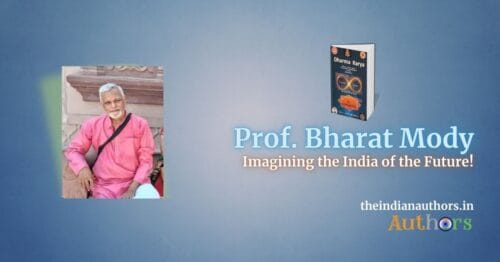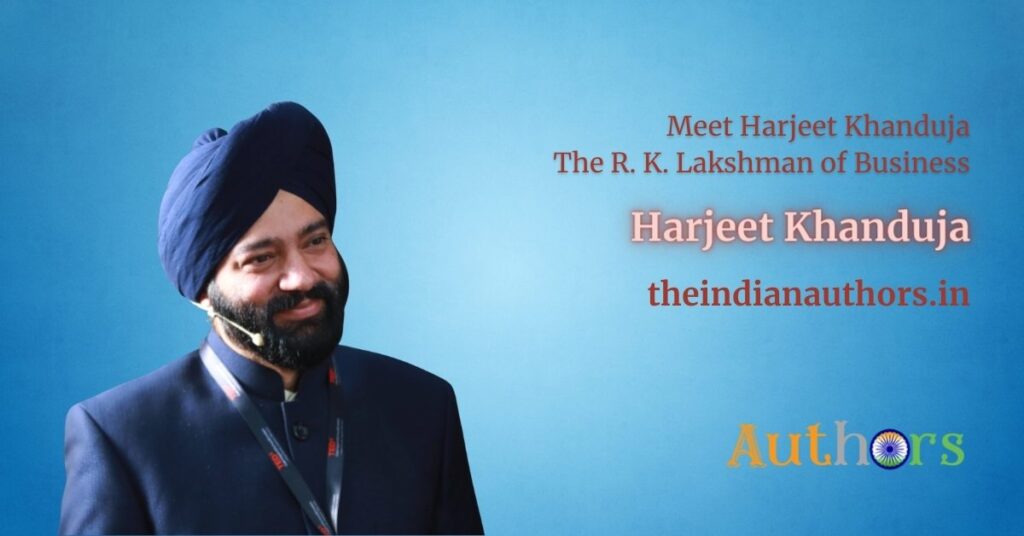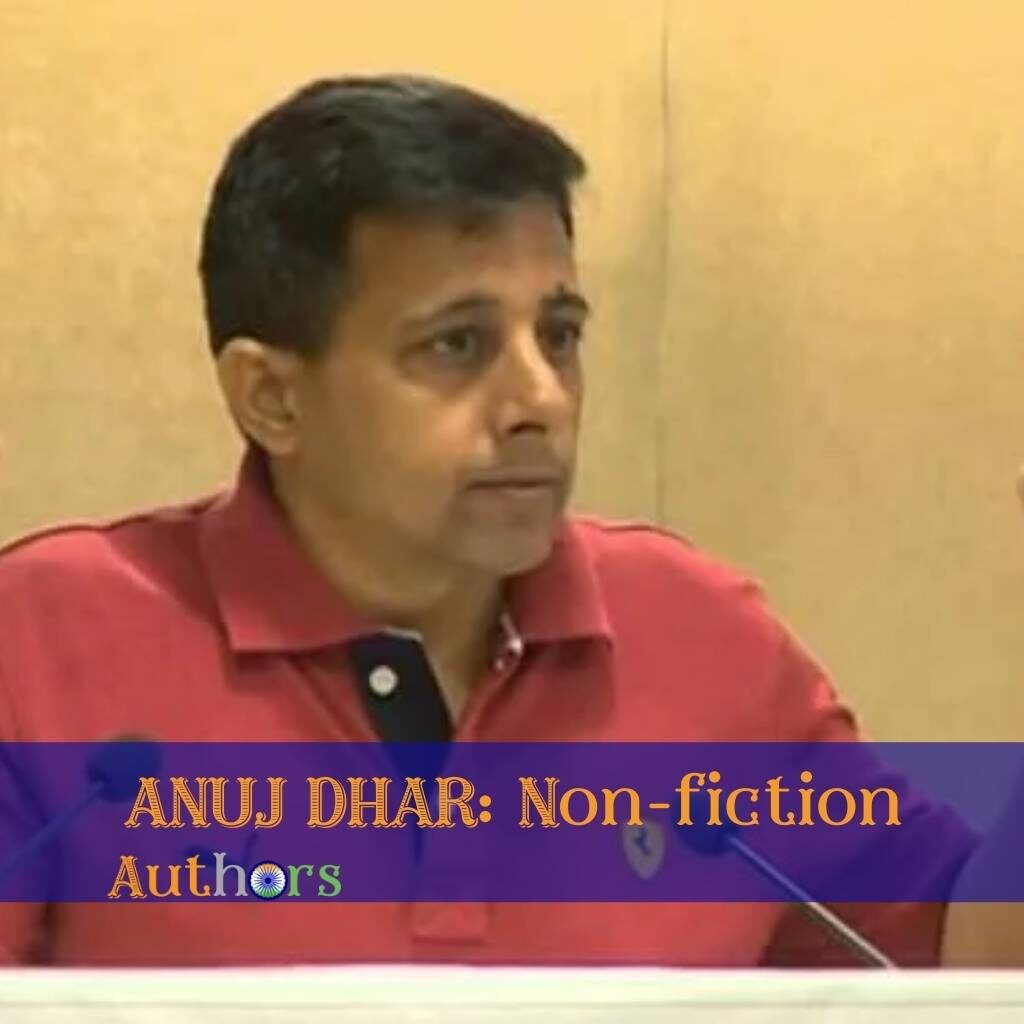Prof. Bharat M. Mody is the author of DHARMA KARYA: An Ideological Book, a work he self-published and copyrighted in 2022. The book is positioned as both a philosophical treatise and a socio-political manifesto, offering what he calls accurate and authentic information for Healthcare Workers and Academics, but with ambitions that extend far beyond professional training. In essence, the book serves as a platform for articulating Mody’s civilizational vision for Bharat and the world.
In this article, I offer my views on the author, his writing style, his perspectives, his philosophical affiliations, and cultural and civilizational doctrines.
Vision and Ideological Foundations
At the centre of Prof. Mody’s worldview lies the conviction that Sanatan Dharma is not merely a religion but a way of life—a civilisational framework that integrates science, art, philosophy, sustainability, and ethics. He believes that the current world order, dominated by Christianity and Islam, has led to ideological decline, flawed administration, and civilisational decay. He positions Sanatan Dharma as the corrective framework capable of establishing global order, stability, and justice.
In his view, the author might exhibit over-enthusiasm, juxtaposing the Hindu or Sanatana way of life against the prevailing situation in the world, which is mainly suffering from various problems, including a lack of cultural and basic civilizational awareness, rooted in the fundamentals of established religions. The author shares his views and ideological beliefs wrapped in well-developed arguments.
Key to his ideological system is Purusharth, understood as heroism in human life and a philosophy of individualism rooted in self-interest, pride, and rational self-guidance. Mody argues that when individuals pursue their Dharma, societal harmony and progress follow automatically. This forms the moral foundation of his endorsement of Political Objectivism and Laissez-Faire Capitalism, systems he believes align with the natural human pursuit of prosperity and freedom.
His ultimate goal is the realisation of Ram Rajya as a global model of governance—an order built upon public-government partnership, mutual trust, and value-based justice. This vision draws equally on philosophical speculation and practical policy design, including reforms in governance, healthcare, education, economics, and citizenship.
Political Views and Critique of Modern India
Prof. Mody’s political stance is uncompromising and frequently polemical. He rejects the dominant narratives of post-independence India, taking critical positions on its leaders, its Constitution, and its governance structure.
On Gandhi and Nehru: He condemns both as “British lackeys” and “puppets of British and Russians,” accusing them of betraying Bharat’s true sovereignty. In his reading, the elevation of Nehru over Sardar Patel was deemed “undemocratic and illogical,” a foundational error that contributed to a flawed nationhood.
On Netaji Subhas Chandra Bose: He venerates Bose as the true liberator of India and the rightful candidate for its first Prime Minister, crediting the Azad Hind Fauj for forcing the British to leave.
On the Constitution: He is deeply critical of its colonial imprint, its accommodation of Islamic personal law, and its “one-sided secularism.” His proposals include removing the words “Socialistic” and “Secular” from the Preamble and rewriting the document in line with Sanatan Dharma.
On Governance: He rejects the Westminster model and the “pseudo-democracy” of parliamentary politics, arguing instead for a Direct Republic System where referendums, recalls, and philosophical governance form the core of political life.
On Citizenship: His most controversial proposal is a reclassification of citizens. He advocates that only “Citizens of India” (Hindus by birth) should enjoy voting rights and hold public offices. In contrast, “Indian Citizens” (non-Hindus, including Muslims who remained after Partition) should have residency and economic rights but be excluded from political participation. He controversially describes this as a necessary act of “ethnic cleansing” to restore Dharma.
Philosophy of Economics and Society
Prof. Mody champions Laissez-Faire Capitalism as the only moral and sustainable economic system. He frames capitalism not merely as a financial order but as an ethical one, rooted in the principle that individual prosperity naturally benefits society. Socialism and communism, on the other hand, are castigated as parasitic systems, perpetuating dependency by “robbing the rich to give to the poor.”
He seeks to build a world where individual rationality, self-reliance, and pride drive national prosperity, and where governance is guided not by populism but by philosophical clarity.
Writing Style
Prof. Mody’s writing is marked by intensity, assertiveness, and ideological fervour. His language is direct, rhetorical, and often combative, aimed less at dialogue than at persuasion and ideological mobilisation.
Polemical Tone: He does not shy away from provocative or incendiary language, characterising India’s leadership in terms of betrayal, weakness, and moral corruption.
Didactic Form: The book is pedagogical in nature, structured around philosophical principles such as Objectivism, Epistemology, Ethics, and Purusharth, and applying them to practical domains of governance, healthcare, and education.
Referential Style: Mody cites widely—from ancient Indian epics like the Ramayan and Mahabharat to modern thinkers such as Ayn Rand—though his interpretations are filtered through his own ideological lens.
His rhetorical style is intended not merely to inform but to provoke, awaken, and mobilise a readership that he perceives as lulled by colonial legacies and pseudo-democratic compromises.
Legacy and Place in Contemporary Discourse
Prof. Bharat M. Mody positions himself as both critic and reformer of modern India. His work situates itself firmly within Bharat-centric intellectual discourse, attempting to reclaim civilisational selfhood by challenging the legacies of colonialism and postcolonial compromise. While his positions—particularly on citizenship and secularism—are deeply controversial, they reveal his broader commitment to an uncompromising Dharma-centric worldview.
Through DHARMA KARYA: An Ideological Book, Mody attempts not only to critique the failures of the present but also to offer a civilisational manifesto for the future, envisioning a Bharat-led global order rooted in Sanatan principles of justice, individualism, and ethical governance. His work thus contributes to the ongoing debate about how Bharat should define itself in the twenty-first century: as a postcolonial nation-state or as a civilisational entity with global responsibilities.
Alka for The Indian Authors



